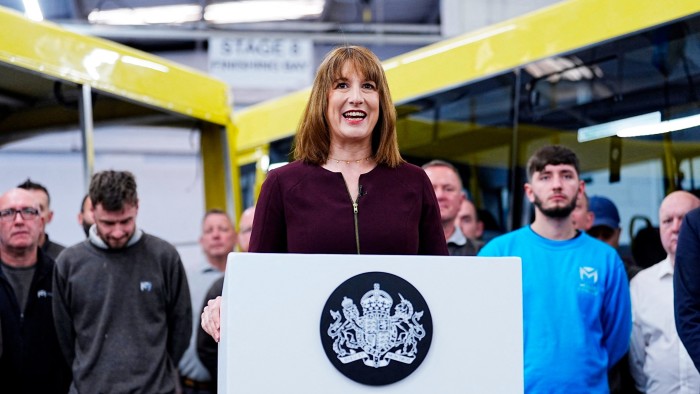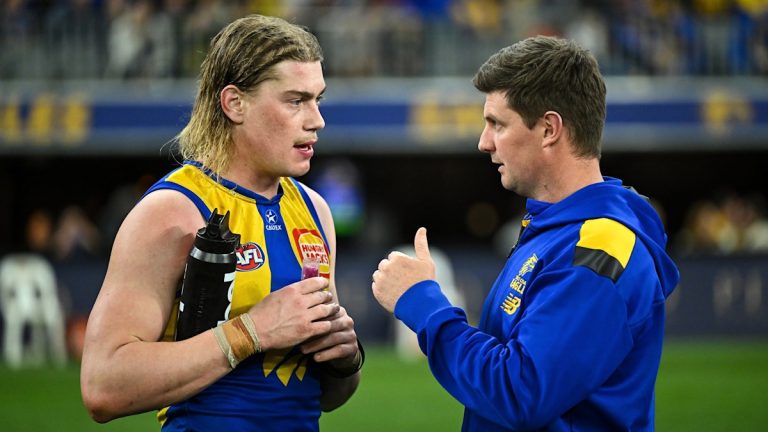Unlock the Editor’s Digest for free
Roula Khalaf, Editor of the FT, selects her favourite stories in this weekly newsletter.
Rachel Reeves has promised that the government will reinstate winter fuel payments to some pensioners this year, performing its U-turn faster than had been expected.
The chancellor confirmed plans to water down her original plan to remove £1.5bn of benefits to 10mn pensioners. “We will be making changes to that,” she said on Wednesday. “They will be in place so that pensioners are paid this coming winter.”
Reeves also vowed to stick to Labour’s pre-election promise not to raise rates of income tax, VAT or employee national insurance, despite growing speculation that she will be forced to raise taxes because she is on course to break her own borrowing rules.
Speaking ahead of next week’s public spending review, Reeves defended her “non-negotiable” fiscal rules, admitting they required tough choices but insisting they are flexible enough to allow £113bn of extra capital spending.
Asked whether she was prepared to break the party’s manifesto pledge not to raise the “big three” taxes paid by working people, she said: “Those are promises we will stand by. We will implement what was in our manifesto.”
Reeves did not, however, respond to a question about whether she would stick to her plan to end the freeze on personal income tax allowances and thresholds — introduced by the last Conservative government — from 2028.
The chancellor, setting out plans for £15.6bn of spending on regional transport schemes in city regions, said she wanted to give mayors the power to generate growth across the whole country.
She used a speech in Rochdale on Wednesday to try to shift attention from cuts to day-to-day spending — the subject of fierce cabinet tensions — towards a big uplift in capital investment, including transport, energy, housing and rail schemes.
Reeves admitted that “not every department will get everything they want next week” as she paved the way for a tough spending review on June 11. “There are good things I’ve had to say ‘No’ to,” she said.
Yvette Cooper, home secretary, is fighting for more police spending, while Angela Rayner, deputy prime minister, is trying to win more money from the Treasury for local government. Ed Miliband, energy secretary, is attempting to defend green energy schemes.
But Reeves insisted that sticking to her fiscal rules on current spending created the stability and market confidence to allow her to borrow for capital investment, with £113bn more spending than that planned by the Conservatives in this parliament.
“It’s not a matter of pride to me that we are sticking to our fiscal rules,” she said, in a message aimed partly at restive Labour MPs concerned about spending squeezes. “It’s about protecting working people.”
Many economists believe that Reeves will be forced to raise taxes in her autumn Budget because of rising borrowing costs, slow growth and government retreats on planned welfare savings.
Reeves is attempting to shift the political narrative away from the idea — prevalent among leftwing Labour MPs — that she is presiding over “austerity-lite” policies.
Speaking at a Rochdale bus factory, Reeves also said she had already set in train more than £190bn of extra day-to-day spending over the parliament, compared with Tory plans, an increase she said was largely funded by a £40bn tax hike in last year’s autumn Budget.
Reeves unveiled an initial set of capital projects due to be confirmed in the spending review, focused on transport in cities outside of London.
She said that a rewriting of the Treasury “green book” — the tool used by officials to measure value for money for public projects — would ensure more investment went into traditionally less productive areas including the north and midlands.
Arguing that chronically low transport investment has led to regional cities such as Birmingham, Newcastle and Liverpool falling behind their European peers, she said that the British economy “can’t rely on a handful of places forging ahead of the rest”.
“We will be making the biggest ever investment by a British government in transport links in city regions and their surrounding towns,” she said of £15.6bn in investment for trams, bus infrastructure and local rail upgrades due to be confirmed next week.
Former prime minister Rishi Sunak had promised billions of pounds worth of additional transport expenditure on regional transport following the cancellation of the northern leg of HS2 in 2023.
Reeves said that the investment had not actually been funded, however, and would only become reality as a result of Labour’s spending review.
Separately on Wednesday, pensions minister Torsten Bell ruled out the possibility that the government would make winter fuel payments universal again. He told MPs on the work and pensions committee that the government is looking at “making more pensioners eligible”, but without further details.
Leading figures in Labour have blamed the issue for losing the party votes in last month’s local elections. Bell said the topic was raised when campaigning, but said the move was also popular among some people: “95 per cent of people agree that it’s not a good idea that we have a system paying a few hundreds of pounds to millionaires”.
He stressed that there was no evidence that taking the payments away had caused excess deaths, saying that there had in fact been “fewer deaths than normal”.








